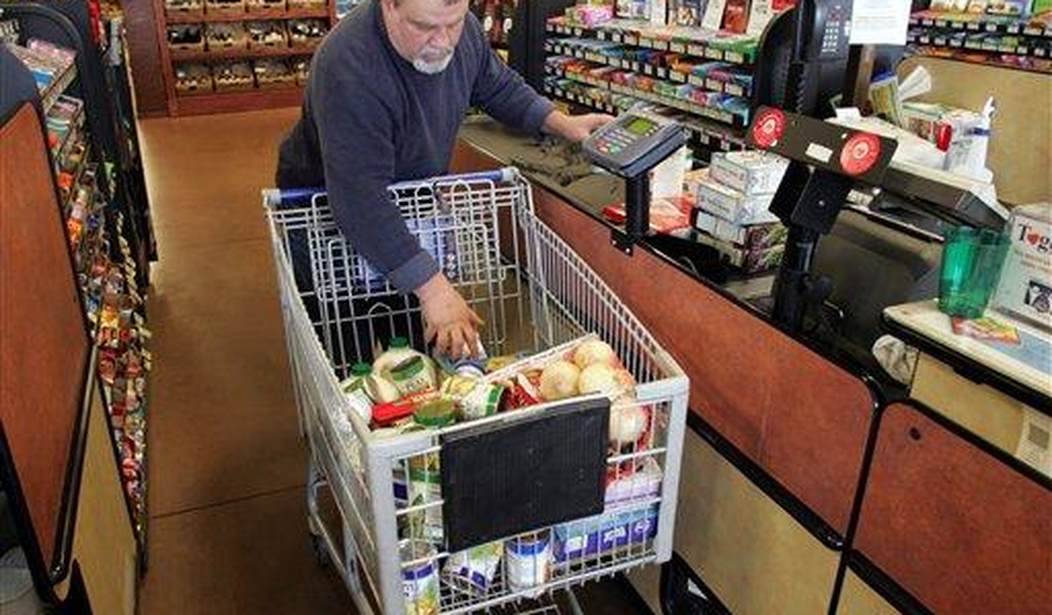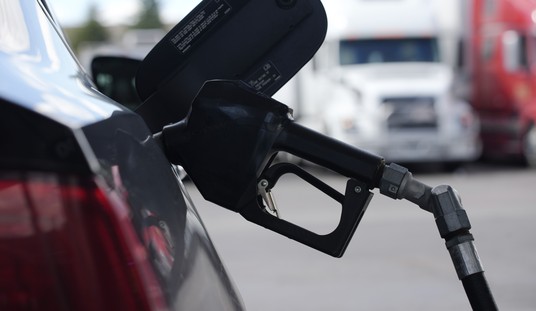After a year of declines, the Consumer Price Index rose 3.2 percent in July compared to a year ago, a slight increase from June’s inflation rate of 3 percent, the Bureau of Labor Statistics reported on Thursday.
CNBC noted that the numbers are "moving in the wrong direction."
CNBC: Inflation "is moving in the WRONG direction" pic.twitter.com/gpfz361j5F
— RNC Research (@RNCResearch) August 10, 2023
⚠️BREAKING:
— Investing.com (@Investingcom) August 10, 2023
*U.S CPI 0.2% M/M, EXP. 0.2%
*U.S. CPI CORE 0.2% M/M, EXP. 0.2%
*U.S. CPI 3.2% Y/Y, EXP. 3.3%,
*U.S. CPI CORE 4.7% Y/Y, EXP. 4.8%
*U.S. JOBLESS CLAIMS RISE 248K, EXP. 230K
🇺🇸🇺🇸 pic.twitter.com/WsJEzb1gX7
Excluding volatile food and energy prices so-called core CPI also increased 0.2% for the month, equating to a 12-month rate of 4.7%. The annual rate for core also was slightly below a Dow Jones consensus estimate for 4.8%.
Almost all of the monthly inflation increase came from shelter costs, which rose 0.4% and were up 7.7% from a year ago. The BLS said more than 90% of the increase came from that category, which accounts for about one-third of the CPI weighting.
Food prices increased 0.2% on the month, and the BLS said energy increased just 0.1% even though crude prices surged during the month and prices at the pump jumped as well.
Used vehicle prices declined 1.3% and medical care services were off 0.4%.
The comparatively tame inflation levels helped raise worker pay. Real wages increased 0.3% on the month and were up 1.1% from a year ago, the BLS said in a separate release.
The annual rate for headline inflation, while below expectations, actually marked an increase from the 3% level in June.
Together, the latest batch of data shows that while inflation has come well off its 40-year highs of mid-2022, it is still considerably above the 2% level where the Federal Reserve would like to see it and high enough that cuts in interest rates are unlikely anytime soon. (CNBC)
Recommended
FOX BUSINESS PANELIST: “The inflation that we’re seeing is in all the stuff that consumers really have no choice but to buy.” pic.twitter.com/dgRmVvFHlB
— RNC Research (@RNCResearch) August 10, 2023
Washington Examiner's Tiana Lowe Doescher:
— RNC Research (@RNCResearch) August 10, 2023
"Let's just think about the compounding effects of this recent inflation crisis. Prices are up 16% since Joe Biden took office. For food they are up 19%, for used car prices up 30%, electricity prices up 23%." pic.twitter.com/jw3fW1n8Rk
In a statement, Alfredo Ortiz, president and CEO of Job Creators Network, said the numbers are a sign the "inflation fight is far from over, no matter what Democrats and the media say."
"Headline inflation is more than 50% higher than the Federal Reserve's target rate and grew last month on a year-over-year basis compared to June," he said. "The Fed's historic interest rate hikes have caused significant problems for small businesses and dramatically reduced their access to credit, but they haven't been enough to overcome the Biden administration's reckless spending and anti-energy policies responsible for persistent BIdenflation.
"Core inflation continues to rise faster than average wages, meaning American living standards are stagnant," Ortiz continued. "Over the course of Biden's term, inflation has increased by more than 16%, far faster than average wages. For some items, such as food, inflation is up 20% or more.
"Ongoing high inflation hits small businesses especially hard. According to JCNF's latest SBIQ poll, inflation continues to be by far the largest concern among small businesses," he added.

























Join the conversation as a VIP Member